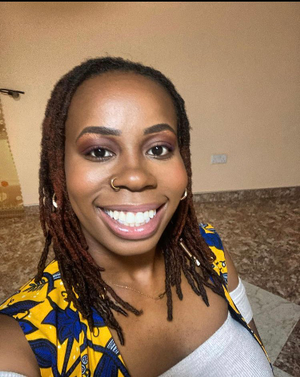March is National Color Therapy Month. In the context of the global climate, and life, many underserved communities may be experiencing emotional stress, trauma, and other mental health ailments, and are financially unprepared to access treatment. Low-cost and alternative therapy solutions may make mental healing more accessible. To celebrate National Color Therapy Month, we are exploring affordable healing strategies.
Varying demographics can benefit from therapy, including those with mental health illnesses, people who experience stress, and others who wish to improve their mental health. Eleyne-Mari Sharp, a writer, and visionary muse, created the month-long theme of National Color Therapy to inspire communities to “discover their light and joy” through color therapy.
Color therapy or chromotherapy is defined as therapeutic treatment that utilizes color and light. This method, dating back to Ancient Egypt, currently includes the shades of red (to energize or invigorate), green (to relieve stress and relax), blue (to treat depression and pain), yellow (to improve mood and stimulate feelings of optimism and happiness) and orange (to increase appetite, mental activity, and happiness).

( Photo by Scott Webb from Pexels )
Some apply the color therapy method through peering at a specific color, while others reflect the shades on a specific portion of their body. Color therapy is said to be partially beneficial in reducing stress, aggression, high blood pressure, sleep disorders, anxiety, skin infections, some forms of cancer, and depression.
Here are some other low-cost therapy strategies:
 (
(
Photo by Jess Bailey Designs from Pexels )
Journaling can help to untangle the web of anxiety. WebMD reports that journaling at least three days a week can reduce depressive episodes and promote well-being. Incorporating journaling into one’s weekly schedule may be an effective (and free) therapeutic practice.

( Photo by Christina Morillo from Pexels )
Self-help books help to develop awareness about the importance of mental health and may promote mental wellness. Books like Black Pain: It Just Looks Like We’re Not Hurting by Terrie M. Williams, Willow Weep for Me: A Black Woman’s Journey Through Depression by Meri Nana Ama Danquah, Soothe Your Nerves: The Black Woman’s Guide to Understanding and Overcoming Anxiety, Panic and Fearz by Angela Neale-Barnett, and What Happened to You: Conversations on Trauma, Resilience and Healing by Bruce D. Perry, MD, PhD, and Oprah Winfrey are pertinent mental health books that may be productive healing resources.

( Photo by Craig Adderley from Pexels )
Coloring has mental health benefits for adults and children. Beaumont Health Hospital reports that coloring relaxes the amygdala, which is the emotion and memory regulation portion of the brain, and improves sleep, focus, motor skills, and vision.

( Photo by Lisa Fotios from Pexels )
Organizing/cleaning/purifying a space is a productive way to improve one’s mental health. Recovery.org finds that clutter can have a direct correlation with an oversaturated mental state and that decluttering can be beneficial to reclaim ownership of your space, be calmer, improve moods, sharpen focus and discover inspiration.
What low-cost healing advice do you have for communities to promote mental wellness?
Works Cited
https://munsell.com/color-blog/national-color-therapy-month/
https://www.cdc.gov/nchs/products/databriefs/db380.htm
https://money.usnews.com/money/blogs/my-money/articles/affordable-ways-to-relieve-stress-and-unwind
https://www.verywellmind.com/color-therapy-definition-types-techniques-and-efficacy-5194910
https://www.oprahdaily.com/entertainment/books/g27409114/mental-health-books
https://www.beaumont.org/health-wellness/blogs/health-benefits-of-coloring-for-adults
https://www.dana.org/article/beyond-emotion-understanding-the-amygdalas-role-in-memory
https://www.beaumont.org/health-wellness/blogs/health-benefits-of-coloring-for-adults
https://www.webmd.com/mental-health/mental-health-benefits-of-journaling

Nana Ama Addo is a writer, multimedia strategist, film director, and storytelling artist. She graduated with a BA in Africana Studies from the College of Wooster, and has studied at the University of Ghana and Kwame Nkrumah University of Science and Technology. Nana Ama tells stories of entrepreneurship and Ghana repatriation at her brand, Asiedua’s Imprint ( www.asieduasimprint.com ).





